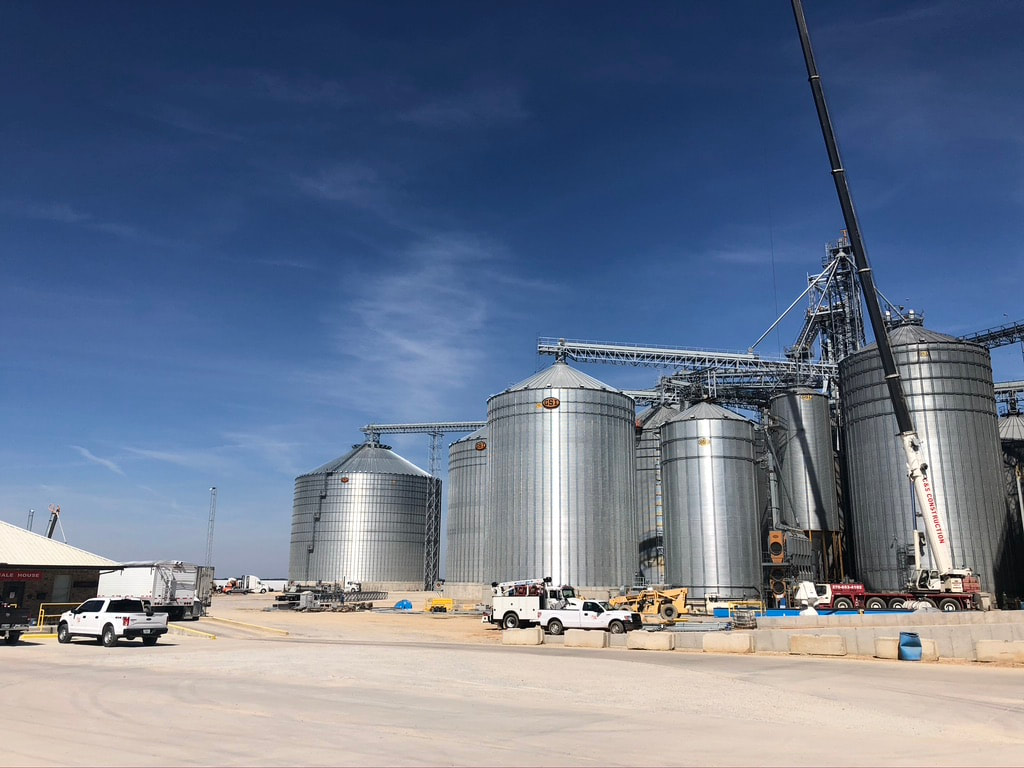 For my Spring 2021 semester job shadowing experience, I traveled down to Henry, TN, and spent two days learning from Caleb Haywood at Tosh Farms. Tosh Farms is the largest pork producer in Tennessee and the 30th largest pork producer in the United States. Caleb is the Grain Manager for Tosh Farms, he manages the 18,000 acres of land, which is half-owned by the company, and then the other half is owned by 83 different landowners. They grow seven different crops on this land: white corn, yellow corn, soybeans, milo, wheat, canola, and barley. Caleb will buy grain from any local farmer, typically within a 50-mile radius of Tosh Farms, for the right price. Caleb is willing to buy any grain a farmer wants to sell to him because he sends that grain to their feed mill and any surplus he sells at the nearest river terminal. Tosh Farms, Henry TNTosh Farms has a separate company called Tosh Pork. The feed mill at Tosh Farms sustains their 35,000 pigs spread out across various farms in TN. Tosh Pork provides care for around 36,000 sows producing over 850,000 market hogs each year. Tosh Pork operates by seeking out contract farmers that can operate either a sow barn or wean to finish barn. I got the opportunity to speak with Caleb on how COVID-19 affected their pork operations. Caleb said because the pork processing plants had cut down their demand by nearly a quarter of what they had been selling at the market pre-covid. They tried every measure, such as raising the temperatures and cutting all of the energy out of their pigs. Despite these measures, they were forced to liquidate one sow barn. They are still recovering from this major setback. I also had the opportunity to receive a tour of all the facilities with Caleb. We walked around the property, and he showed me the different styles of grain bins, scales, unloading areas, feed mill, and by-product building. The most unique part of the tour was the by-product building. In this building, you have mounds of ground-up by-products going to go to waste and that Tosh Farms receives from different companies and then mix into the pig feed. These products include dog food, peanut butter, chip bags, and rice. Incorporating these by-products into their pig feed can save millions of dollars on soybean meal a year. Comments are closed.
|
Grain & Feed Association of Illinois3521 Hollis Dr. Archives
April 2024
Categories |
|
Grain and Feed Association of Illinois. All Rights Reserved.
3521 Hollis Drive | Springfield, IL 62711 Phone: (217) 787-2417 | [email protected] | sitemap |

 RSS Feed
RSS Feed